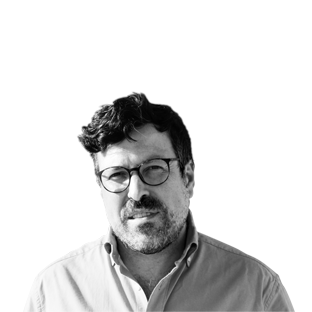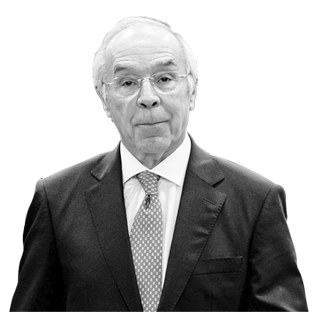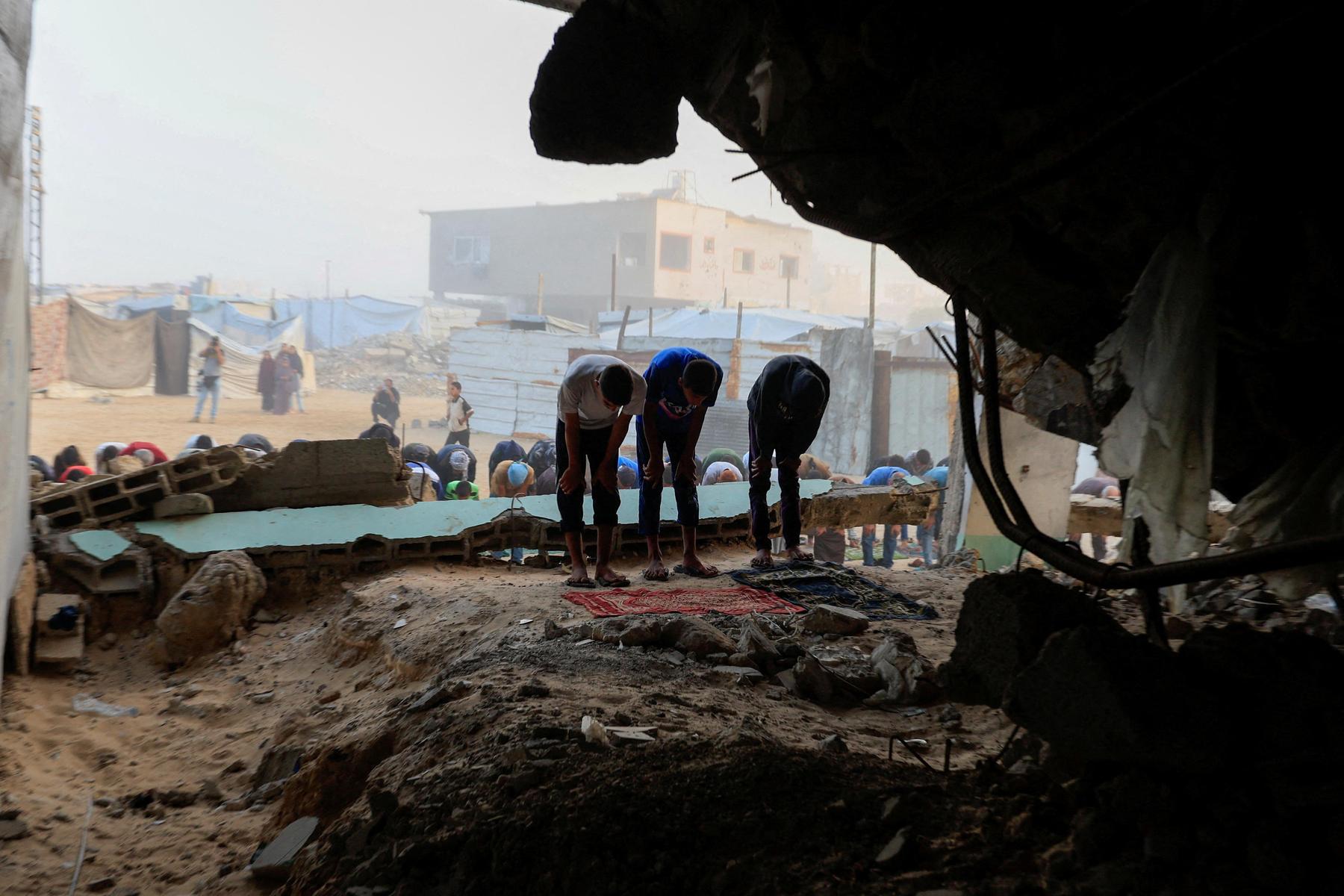Left and right, between the wood and the tabopan

A few days ago, at a dinner between former school colleagues, a long-friendly friend, a left-wing woman who had never been a communist, she told me, to my big surprise, that in these elections she had decided to vote on the PCP. Reasons? « It’s just that they can’t disappear, » he told me. «They are part of our lives; To see them disappear would be to lose something from us, from our childhood, our imagination. I gave myself to recognize that there was something true in what I said. I smiled, without rebutting the argument, and the conversation headed to other destinations, between jokes and glasses. But I thought later that, in fact, to those who have been for the fifty years, being born between the Estado Novo scent and the dealbar of democracy, the democratic system has acquired the crystallized form of a very closed hierarchy of parties, a form maintained for decades and whose stability we have difficulty removing ourselves. Democracy is not necessarily so. This is not how the democratic aspirations of our parents were glimpsed. Nor is it not how it will surely be said in the future to our children. But the truth is that for the first generation that was born and raised in democracy, it turned out to be a kind of entertainment in which the few protagonists on stage are players whose performances the television commentators and the remaining press are busy discussing and classifying; Players in something similar to a confusing football championship in which, in the same championship, several alloys and echelons are played.
For those who ventured to spend and take their first steps as the Portuguese state was also taking them to socialism, according to the imperative prescribed in our constitutional preamble, the first league of the party championship was reduced to a final monotonous, invariably between two parties whose differences were reduced, over time, the distinction between nothing and nothing. Each of them has always aimed at their own way an Oximoro: « Socialism in freedom. » The image of a championship thus disputed transformed the Portuguese legislative elections into a closed choice between two « candidates for prime minister ». Therefore, over decades, with the indispensable media collaboration, everything has been prepared for the large mass of the votes to pour out docile on the funnel of this choice. PS and PSD, Demo-Socialist and Social Democrats, got used to sharing the spoils of the Portuguese State for their clients, taking turns as a domesticated and aged society, living from their alternation as those that have to occur so that everything is in the same. When political decisions came from Brussels and not Lisbon, the choice definitely failed to reflect visions of the world or political decisions to become among the occasional administrators of the same Statu Quo.
A nascent democracy, however, could not survive if reduced to the simple alternation between simply indiscernible figures. To the First League championship, in which the administrator was played, there was to add a second with less visibility. The large mass of the population would dedicate their vote to the first league championship. But some would notice that in the same championship, other disputes would also be. The second league of the championship would be inhabited by more or less deviant ideologies of « socialism in freedom » constitutionally consecrated, but still tolerated by a nascent democracy that would only exclude « fascism », whatever it was. In it there should be room for those who defend freedom without socialism, as was the case of conservatives and Christian democrats such as the CDS. These were certainly sought to vote against the 1976 Constitution, which intended the country to a ‘socialist society’, but could even be useful for stabilizing the system at more disruptive times. On the other hand, in the distanced 1970s and 80s, democracy should also extend those who defended socialism without freedom, or socialism whose freedom mirror the singular conception of Soviet tyranny and communist dictatorships then coupled around it. This was the case of the PCP, for whom the Portuguese party system, after 25 November and the end of the threat of civil war, had reserved a paradoxical place: the honorable place of founder of a multiparty bourgeois democracy that would, in the end, would like to overthrow if it could.
In turn, referred to a third league, to any innocuous regional championship or a league of the latter, were the inevitable marginal groups of radicalized students, or their substitutes, specializing in vocafering and chanting LOAS to Maoism or Fourth International, the « albanian experience » or to other equally creative. These were the ones who, from the last decade of the twentieth century, after the fall of the Berlin Wall and the end of the Soviet Union, began a slow PCP emptying path, becoming in their Ersatz and replacing their rigid class struggle doctrine with postmodern populism of fracturing micro-pacism, identity policies and wokisms. With the emergence and the beginning of the expansion of Woke culture, « a star was born »: they joined the left block and envisioned the possibility of ascending in the Democratic Championship. Certainly they would never have the popular support that media support was in charge of compensating. Certainly they would not compete for the first league, where PS and PSD should keep a captive place. But they could replace the dusty and declining PCP, as well as collaborate on left -winging solutions. It was this innovative collaboration that the experience of António Costa’s Gergonça allowed, in an experience that on the PCP raised a senile inexpensive fleeting. It is the craving for this collaboration that today animates the free, the green and European left, now responsible for the predictable decline of the bloc: a left that has abdicated its colors, origins and memories to try their luck as a trainer of the « worldview » of young people inclined to socialism. The autophagy of all these successors of communism ends up arousing nostalgia like my friend’s. Between the PCP and the left block, or even between the block and the free, the difference is always « the one that exists between true wood and tabopan ». Triste times we live, when it is always the tabopan to replace the wood.
And in relation to the right, what do these times announce? I thought, when my friend’s comment, it would be no coincidence that, as happened in France, Italy or Spain, also in Portugal there is the interesting process of a direct transfer of the vote on the PCP to the right to which it is now called national or illiberal. They show him, among many other things, the results obtained by arrives in Alentejo last year. These were, in fact, the most revealing data of a structural change of Portuguese democracy. After April 25, with the persecution, arrest and exile of many of its militants and political leaders, after the radicalization of the Portuguese revolutionary process between September 1974 and November 1975, the Portuguese right was set out and excluded from national championships. Not even the district championships were allowed to play. Thus, the possible right became shy, centrist, conventional. He learned to survive by becoming what a happy expression of Jaime Nogueira Pinto called the « right of the left. » As a result, for a long time, the PSD, when playing the first league championship, tried to welcome it, dilute it and inhibit it, making it invisible and also innocuous. When the right finally broke free from this guardianship, it would be inevitable that it would take it, as a mark of origin, the still something anody and indefinite character that the PSD lent it to it. This is still the phase we are in. It is therefore to expect that, for the consolidation of its growth, the right assumes a process of transformation that appears the exact opposite of the one that the left has suffered. In the last three decades, the radical left has been crumbling communism, hoping to make it palatable for young socialists. He settled within the system, promoted by the media and cultural industry, and hinted to the PS, entering it and turning the wood into Tabopan. As for the right, leaving the undefined tabopan that is the PSD, will have to do its route outside it. This means reading, studying, thinking, and speaking more freely, outside the little corsets that have been imposed on it. The moment the PSD is reduced to an erratic hybrid and the CDs to the spectral presence that accompanies it, means to make a reverse route to the left. It means acquiring greater solidity and more consistency. It means being more wood and less tabopan.
University professor








